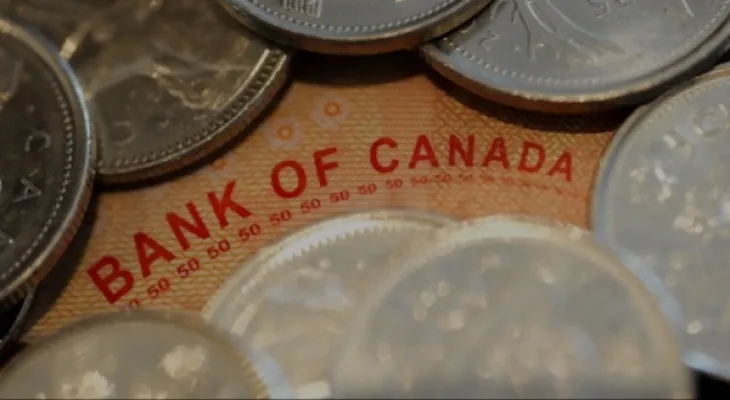Search here
Newspaper
Search here

Arab Canada News
News

Published: April 4, 2023
Companies and consumers expect inflation to slow down faster than previously thought, but as high interest rates affect the economy, they are also adjusting their financial situations to account for the slowdown.
This is according to the Bank of Canada’s business and consumer surveys and forecasts for the first quarter, released today Monday.
The surveys – which ask respondents what they believe the annual inflation rate will be one year, two years, and five years from now – also showed that inflation expectations for the future are declining. This comes amid a slowdown in the actual inflation rate over the past months, reaching 5.2 percent in February after peaking at 8.1 percent last June.
However, companies and consumers still expect inflation to remain above 2 percent at least until 2025.
The Bank of Canada is also closely monitoring inflation expectations in the economy because inflation can remain high if companies and consumers continue to expect prices to rise quickly.
The central bank is likely to see a decline in inflation expectations, but the surveys show that companies and consumers still expect inflation to be higher than the Bank of Canada’s forecasts.
It also currently expects inflation to decline to about three percent by mid-year and return to 2 percent in 2024.
The central bank had sharply raised interest rates starting in March 2022 to clamp down on rapidly rising prices, currently keeping the key interest rate steady at 4.5 percent and not expecting to raise it again as long as inflation cools quickly enough.
For its part, the Bank of Canada will make its next interest rate decision on April 12. In a client note sent today Monday, TD’s Chief Economist James Orlando said the survey responses should encourage the Bank of Canada to stay on the sidelines.
With the key interest rate at its highest level since 2007, high borrowing costs are expected to further constrain consumers and impact business activity in the coming months.
According to the survey, a larger number of consumers report being worse off due to higher interest rates and inflation compared to the last survey, which was conducted in the fourth quarter of 2022.
Overall, 56.5 percent of consumers say that high inflation has made them "much worse" or "somewhat worse." Meanwhile, 31.3 percent say they are worse off because of rising interest rates.
The central bank’s surveys also revealed that consumers with variable-rate mortgages, Indigenous peoples, persons with disabilities, and racialized individuals are more likely to report being harmed by rising inflation rates and interest rates.
With a potential recession looming, the surveys show that consumers expect spending to decline and companies expect sales to slow down.
The Bank of Canada found that nearly half of companies have adjusted their business plans to consider the recession. Consumers plan to spend less on activities like travel and dining out over the next year.
In the same context, Orlando said that the change in behavior is a sign that the economy is actually heading toward a slowdown, adding: "If consumers and businesses adjust their behavior in preparation for a slowdown, it becomes a self-fulfilling prophecy. This means the positive surprises streak will not last much longer."
So far, the economy has been relatively resilient amidst rising interest rates, with Statistics Canada earlier this week reporting that real GDP rose by 0.5 percent in January after declining by 0.1 percent in December. Its preliminary estimates for February indicate another increase of 0.3 percent.
The labor market in particular showed strength, with the economy continuing to add jobs despite recession talk bubbles.
While labor shortages remain the second most important issue facing businesses, the surveys show signs of easing in the labor market, with companies no longer expecting wage increases to push inflation higher.
The Bank of Canada raised concerns about a tight labor market and rising wages fueling inflation, with the unemployment rate in Canada hovering near record lows in February, settling at five percent. Meanwhile, wages increased by 5.4 percent compared to last year.
Comments